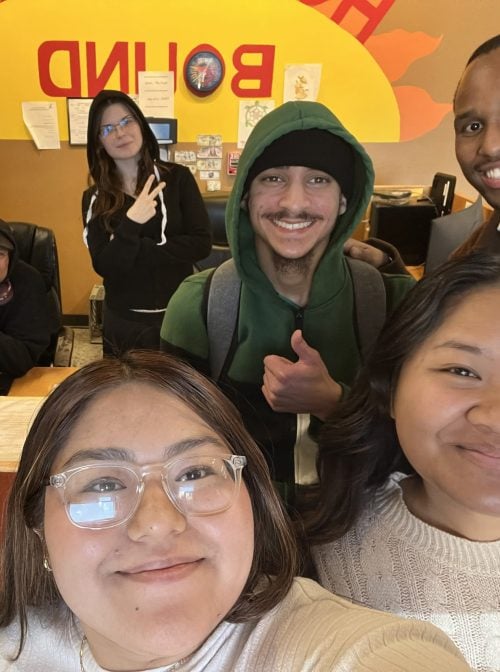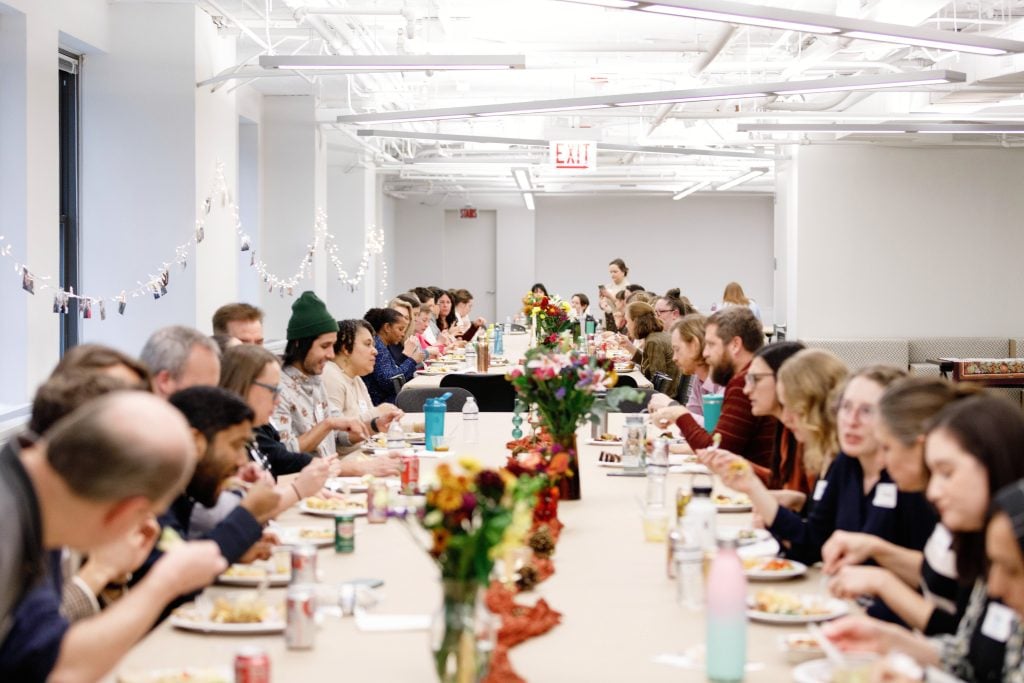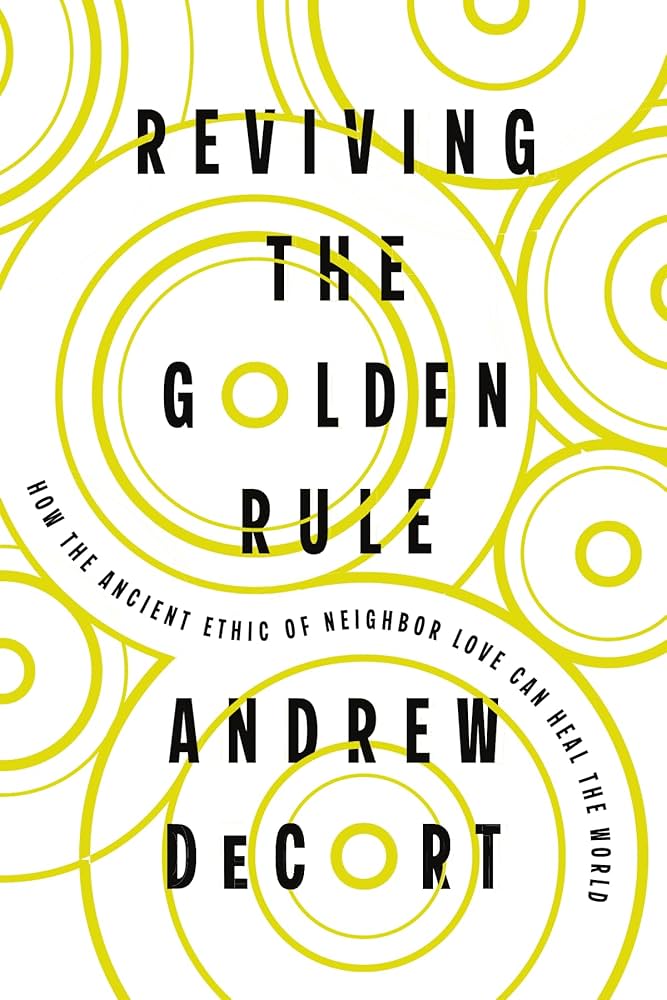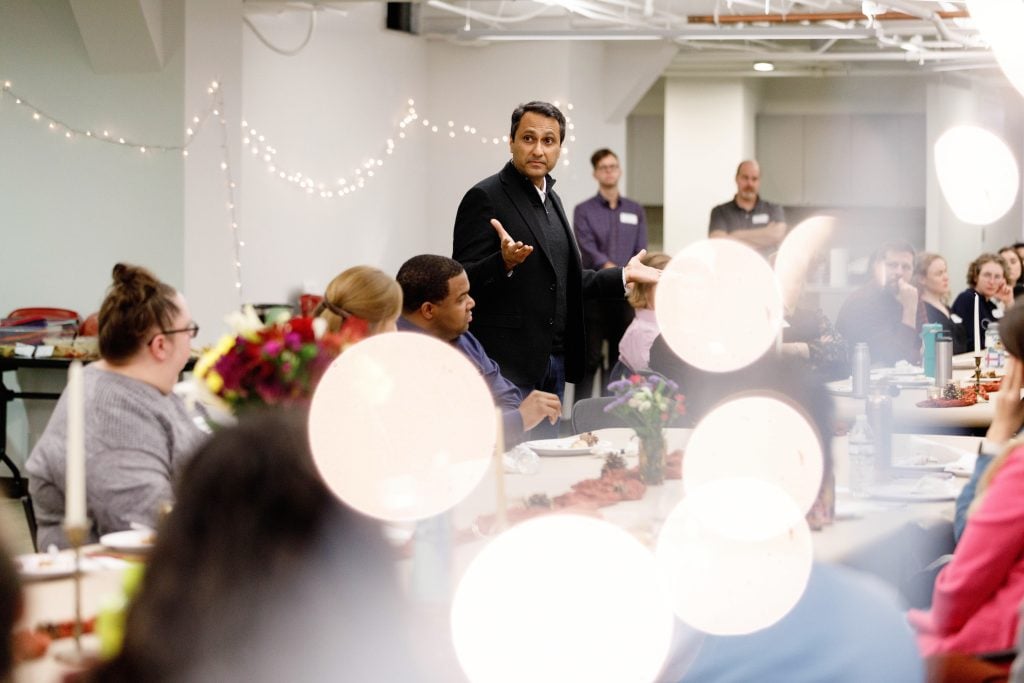On a cold Minnesota evening last November, nearly 20 Augsburg University students gathered at the hundred-year-old Central Lutheran Church in inner-city Minneapolis. After touring the site, the students settled in a conference room to learn more about the everyday concerns facing marginally housed neighbors. Tyra and Darrell from Street Voices of Change shared their lived experiences as formerly unhoused neighbors and their advocacy for housing rights now as leaders of the organization.
Like many faith-based organizations, Central Lutheran Church grounds its faith practices in a social justice framework and is a proud site for Augsburg’s Health Commons, a network of nursing-led drop-in centers led and organized by Augsburg nursing faculty members, nursing and physician assistant volunteers, students, and community members. The visit that night was intended to help students learn how faith-based organizations are serving neighbors of all faiths experiencing homelessness by providing clothing, spiritual, and health care services. The people who come to the Health Commons are from diverse cultural and socioeconomic backgrounds. Many live on Minneapolis’s streets or are marginally housed.
These students were participants in Augsburg’s Interfaith Scholars program, a year-long cohort of students who engage in interfaith dialogue and action. This year the program had 18 students with agnostic, Buddhist, Christian, Muslim, Native, secular humanist, spiritual/non-religious, and witchcraft worldviews. The theme of the class was “Religious Pluralism and Ethics and Practices of Care.” Professor Najeeba Syeed chose this theme for the class because it “allows students to explore what really matters to them through the lens of learning from and connecting with others with different faith traditions or worldviews”.
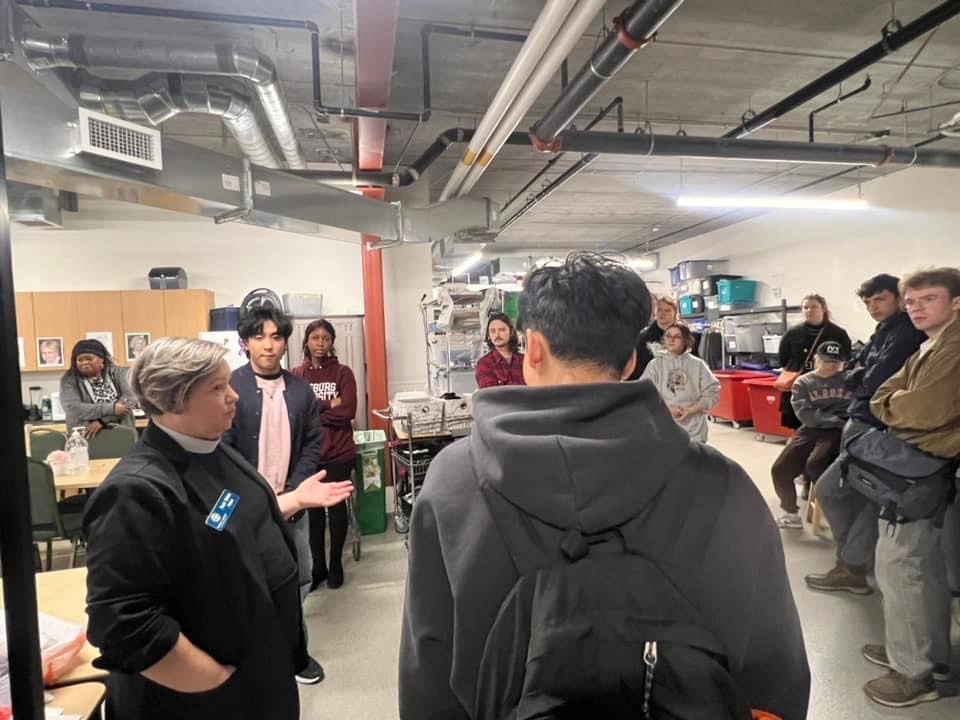
Back on campus, Interfaith Scholars worked on projects related to their own ethic of care. Mahamed Yusuf, a sophomore biology major and a member of Augsburg’s Pre-Med Student Association, saw an opportunity to address barriers faced by unhoused neighbors. With funding from Interfaith America’s Advancing Religious Pluralism grant, Yusuf led a group to raise awareness and funding for basic hygiene supplies for unhoused neighbors. The scholars led a campus-wide fundraising event raising nearly $400, assembled hygiene kits, and donated them to multiple shelters around the Cedar Riverside neighborhood in which Augsburg is located.
Mahamad later reflected, “With this single event, we advocated for the unhoused women in our neighborhood, bringing awareness to their lack of care, and in the process, provided kits to more than 300 individuals. One thing that has stuck with me during this process is that when delivering the kits to these shelters, every one of them told us about the lack of these necessities for the community.
Our Cedar-Riverside neighborhood continues to face high levels of housing insecurity, with limited access to help. Realizing the dire need for basic hygiene has motivated me to bring this initiative into the Interfaith Scholars program. Through this involvement, I learned the power of advocacy, bringing awareness to the homeless crisis in our city. I hope to inspire new initiatives providing care for those who need care in our community. I have seen firsthand how small acts can ripple into a sense of advocacy and care. This project is a reflection of our values and our commitment to the health equity of our community. In the future I hope to continue to provide kits to the Cedar-Riverside unhoused community, reaching many other individuals and serving them with a commitment rooted in dignity and compassion.”
In addition to raising awareness of the needs of unhoused neighbors and engaging Augsburg students in direct service, the project raised the visibility of interfaith work on campus. After helping assemble the hygiene kit, several students expressed a desire to get involved. One noted that he “really enjoyed serving the community and the notion of uniting people of various backgrounds to serve the community.”
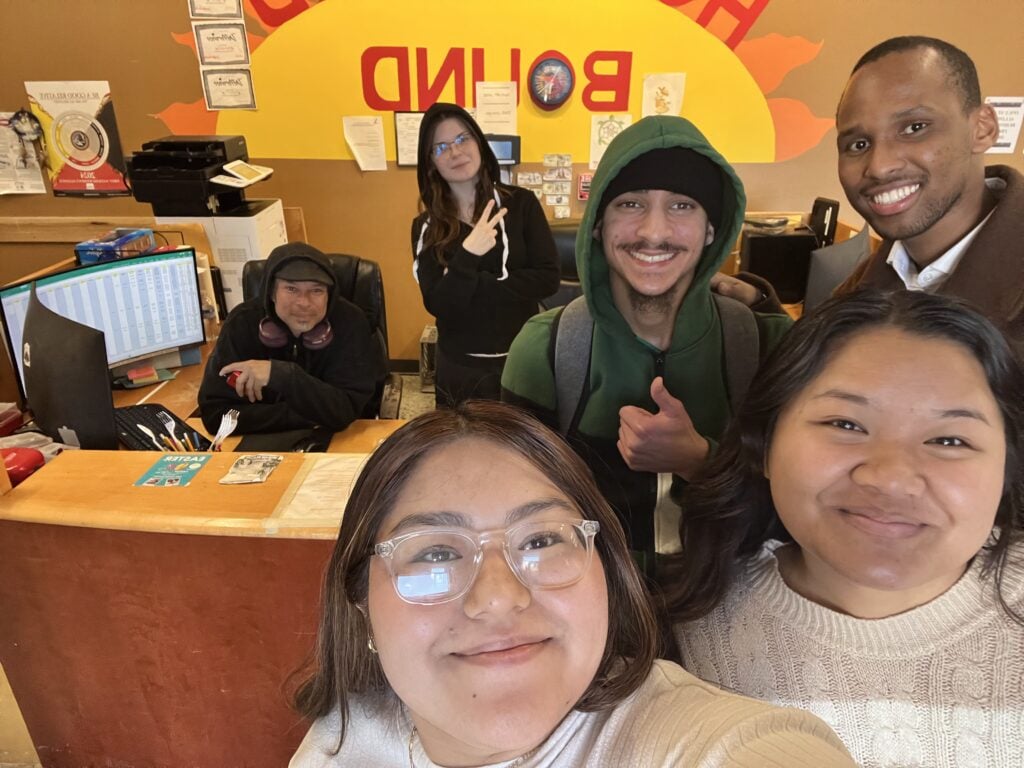
With funding from the Advancing Religious Pluralism grant, Interfaith Scholars completed other projects related to students’ ethics of care including: hosting a campus-wide Narcan training (a training to help individuals in life-threatening opioid emergencies), creating an advocacy group for students with disabilities, and raising funding for therapeutic tattoos to cover scars related to self-harm.
While Mahamed Yusuf has now completed his time as an Interfaith Scholar, he has submitted a grant to continue this work next year. He said, “As a Muslim student leader, this project is a reflection of the Islamic ethics of care and a mission grounded in service, dignity, and Interfaith compassion.”
Michon Smith is the Managing Director of Interfaith at Augsburg University. She has worked in the nonprofit sector for close to 20 years, telling the stories of organizations and people served, and raising funds through grant writing and events. She has supported organizations making a difference in an array of community needs, including education, housing, and equitable services for people with disabilities and immigrants.
